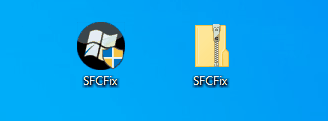Hi,
I'm trying to download/install Windows Update (2024-09 Cumulative Update for Windows 10 Version 22H2 for x64-based Systems (KB5043064)) on my PC Windows 10 Version 22H2 64-bit. But the updating process was failed with the following error:
and some other time, I got the following error:
I tried the following actions with no success:
Please find attached the logs of dism & CBS
Thanks,
I'm trying to download/install Windows Update (2024-09 Cumulative Update for Windows 10 Version 22H2 for x64-based Systems (KB5043064)) on my PC Windows 10 Version 22H2 64-bit. But the updating process was failed with the following error:
Some update files are missing or have problems. We'll try to download the update again later. Error code: (0x8007000d)
and some other time, I got the following error:
There were some problems installing updates, but we'll try again later. If you keep seeing this and want to search the web or contact support for information, this may help: (0x8007371b)
I tried the following actions with no success:
- I ran:
- chkdsk /f
- sfc /scannow
- DISM /online /cleanup-image /ResoreHealth
.. all failed
- I downloaded that KB and installed it manually.. failed
- I followed the below commands:
- net stop bits
- net stop wuauserv
- net stop cryptsvc
- ren %systemroot%\softwaredistribution softwaredistribution.bak
- ren %systemroot%\system32\catroot2 catroot2.bak
- net start bits
- net start wuauserv
- net start cryptsvc
.. failed
- I tried to uninstall the last cumulative Windows Update which was 2024-04 (KB5036982).. failed
Please find attached the logs of dism & CBS
Thanks,



